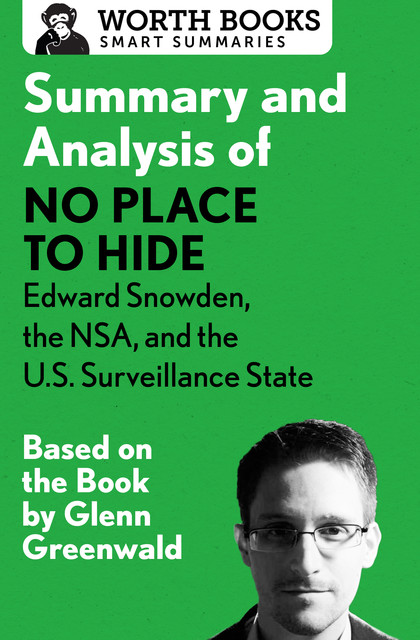Summary and Analysis of No Place to Hide: Edward Snowden, the NSA, and the U.S. Surveillance State
- О книге
- Цитаты2
- Читают14
- Похожие книги
35 бумажных страниц
- Дата публикации оригинала
- 2017
- Год выхода издания
- 2017
- Издательство
- Worth Books
Цитаты
- Amanda Vagner Riisцитирует5 лет назадBack in 2012, people might have entertained the idea that government agencies could hack their computers if they wanted to. But what Snowden’s documents revealed was far worse: the NSA had—and still has—systems in place that can commandeer cell phones and computers connected to the Internet around the world, and was collecting, analyzing, and storing data without warrants, or even probable cause.
- Amanda Vagner Riisцитирует5 лет назадAfter the terrorist attacks of September 11, 2001, President George W. Bush signed into law the USA Patriot Act, which gave the government unprecedented domestic surveillance powers. Most people had little idea how much those powers trespassed on their privacy and civil liberties until 2013, when whistle-blower Edward Snowden leaked a treasure trove of documents from his job at the NSA. These documents revealed high-level spying by the agency on ordinary citizens.
fb2epub
Перетащите файлы сюда,
не более 5 за один раз


